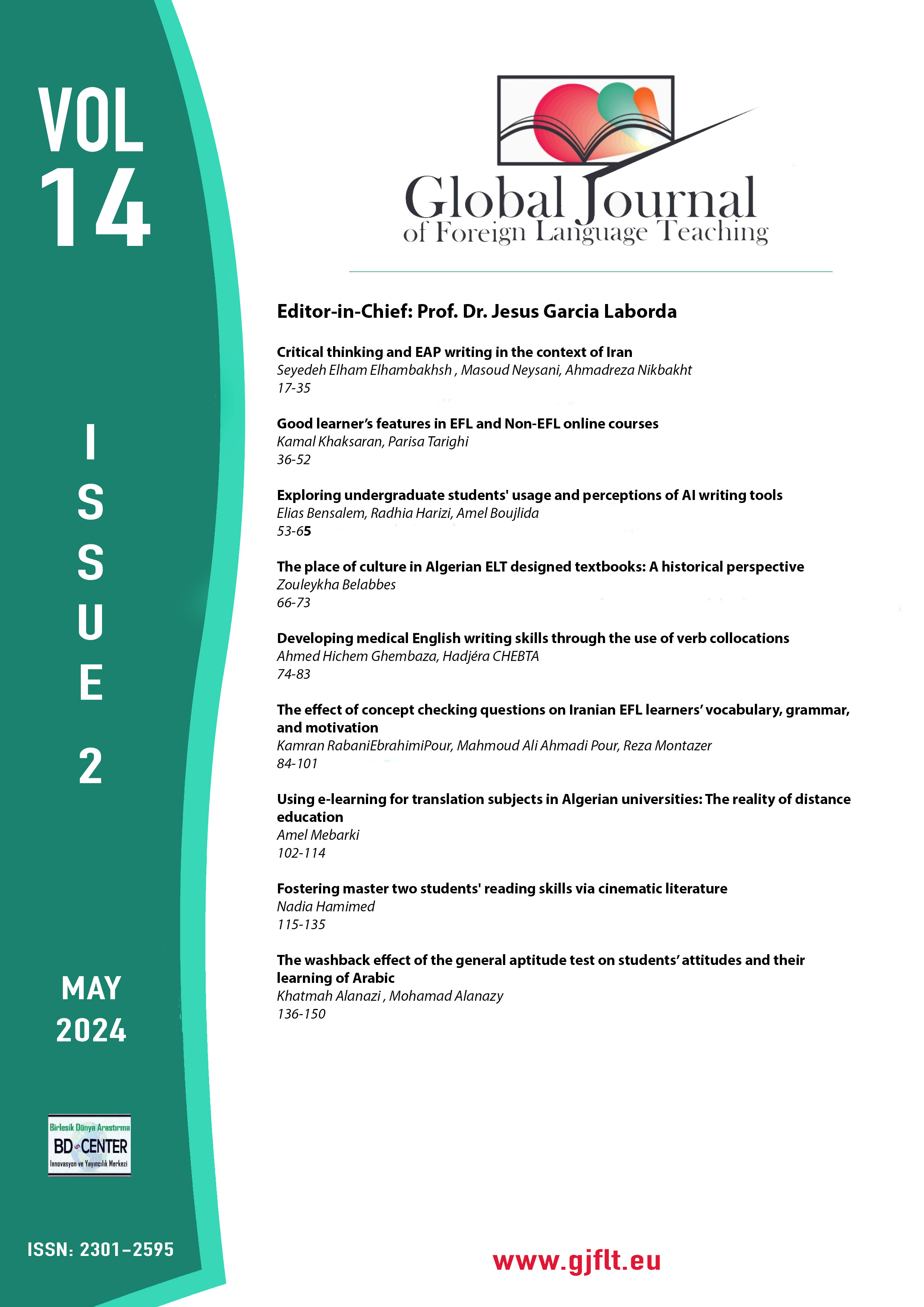The washback effect of the general aptitude test on students’ attitudes and their learning of Arabic
Main Article Content
Abstract
Many educational bureaucracies use national examinations for high-stake decision-making including certification, promotion, and qualifications. This study examines the washback effect of one of those exams, known as the General Aptitude Test (GAT), on the students’ learning of the Arabic language. Specifically, it examines students’ perceptions of the GAT and how it impacted their learning practice. Based on questionnaire responses from 548 high school students, and 12 interviews, the study finds a negative washback effect on students’ perceptions and learning. Most students expressed negative views about the GAT as it causes stress, and they perceive that it is a barrier to their university admission. In terms of using the GAT results, findings reveal that many students did not change their learning due to the mismatch between test content, learning, and teaching activities. This study provides important evidence about students, perceptions of and influence of GAT on their learning. We discuss the implications of these findings in minimizing the negative washback effect.
Keywords: General Aptitude Test; Students’ Attitude; Washback effect
Downloads
Article Details

This work is licensed under a Creative Commons Attribution-NonCommercial-NoDerivatives 4.0 International License.
Authors who publish with this journal agree to the following terms:- Authors retain copyright and grant the journal right of first publication with the work simultaneously licensed under a Creative Commons Attribution License that allows others to share the work with an acknowledgement of the work's authorship and initial publication in this journal.
- Authors are able to enter into separate, additional contractual arrangements for the non-exclusive distribution of the journal's published version of the work (e.g., post it to an institutional repository or publish it in a book), with an acknowledgement of its initial publication in this journal.
- Authors are permitted and encouraged to post their work online (e.g., in institutional repositories or on their website) prior to and during the submission process, as it can lead to productive exchanges, as well as earlier and greater citation of published work (SeeThe Effect of Open Access).
